(Adopted on 27th September, 1994)
Part I Preliminary
1. Short title
This Act may be cited as the Prevention of Corruption in Public Life Act.
2. Interpretation
In this Act, unless the context otherwise requires –
“assets” means any property held in beneficial ownership whether in or outside Belize;
“Chairman” means the Chairman of the Commission;
“child” means a person under the age of eighteen years who is the child, step-child or lawfully adopted child of any person;
“Commission” means the Integrity Commission established under section 3;
“declaration” means a declaration of assets, income and liabilities;
“income” includes all receipts by way of salary, fees, wages, perquisites, profits, gain, emoluments, rents and interest whether they are received as money or as money’s worth, commission, bonus, pension, annuity or benefit, and shall include –
(i) details of contracts awarded by the Government or other public body;
(ii) leases or grants of land awarded by Government or any other body at the direction or nomination of Government;
(iii) private sector contracts of the amount of twentyfive thousand dollars or above;
(iv) details of any business interests; and
(v) other benefits valued at more than five thousand dollars received from any source;
“liabilities” includes any obligation to pay money whether in or outside Belize;
“person in public life” means –
(a) Members of the House of Representatives including the Speaker;
(b) Members of the Senate including the President of the Senate; and
(c) Members of local authorities (City Councils and Town Councils);
“public appointee” means a member of a statutory body, or a member of the Public Services Commission, or a member of the Elections and Boundaries Commission, or a member of the Belize Advisory Council, or any person appointed as a senior officer or servant of any corporation or board established by law for public purposes, or a member or officer of any subsidiary company of such corporation or board registered under the Companies Act;
“public body” includes local and public authorities of all descriptions;
“public officer” has the meaning ascribed to it in section 131 of the Constitution;
“Secretary” means the Secretary of the Commission.
Part II Integrity commission
3. Establishment of Integrity Commission
(1) There is hereby established for the purposes of this Act a body to be known as the Integrity Commission, which shall consist of a Chairman who shall be an attorney-at-law with not less than five years’ standing, and six other members who shall be persons of integrity and high national standing.
(2) Two members of the Commission shall be appointed by the Governor-General, acting in accordance with the advice of the Prime Minister given with the concurrence of the Leader of the Opposition, and the other members of the Commission including the Chairman, shall be appointed by the Governor-General, acting in accordance with the advice of the Prime Minister given after consultation with the Leader of the Opposition:
Provided that in the process of consultation with the Leader of the Opposition for the appointment of the Chairman, the Prime Minister shall use his best endeavours to secure the agreement of the Leader of the Opposition.
(3) At least one member of the Commission shall be a member of the Institute of Chartered Accountants of Belize.
(4) The First Schedule shall have effect as to the term, the powers and practice of the Commission and otherwise in relation thereto.
(5) The Commission shall appoint a Secretary; and until such appointment, the Clerk to the National Assembly shall act as Secretary to the Commission.
(6) The duties of the Secretary shall be:-
(a) to attend the meetings of the Commission;
(b) to record its proceedings and to keep its papers;
(c) to summon and record the testimony of witnesses; and
(d) generally to perform such duties connected with the work of the Commission as the Commission may require.
4. Functions of the Commission
(1) The Commission shall –
(a) receive, examine and retain all declarations filed with it under this Act;
(b) make such inquiries as it considers necessary in order to verify or determine the accuracy of the declarations filed under this Act;
(c) receive and investigate complaints regarding non-compliance with or breach of the provisions of this Act;
(d) perform such other functions as it is required by this Act to perform.
(2) In the exercise of its functions under this Act, the Commission shall not be subject to the direction or control of any other person or authority.
5. Commission to report to National Assembly
(1) Subject to subsection (2), the Commission shall, not later than 31st March in each year, make a report to the National Assembly of its activities in the preceding year and the report shall be tabled in the National Assembly not later than 31st May of the same year.
(2) The Commission shall make its first report to the Prime Minister not later than three months after the end of its first year of operation, and the report shall be tabled by the Prime Minister within three months of its making.
Part III Financial disclosure
6. Duty to furnish declaration of financial affairs
(1) Every person in public life shall furnish to the Commission, as and when required to do so by this section, a sworn declaration of assets, income and liabilities in the form prescribed in Form A of the Second Schedule.
(2) A declaration shall be furnished pursuant to subsection (1) –
(a) in the case of a person who is a person in public life at the commencement of this Act, within three months of that commencement, in respect of his assets, income and liabilities for the year ended on the previous 31st December;
(b) in the case of a person who becomes a person in public life after the date of commencement of this Act, within three months of his becoming a person in public life, in respect of his assets, income and liabilities for the year ended on the previous 31st December, and thereafter on the 31st December in each year that he is a person in public life, in respect of his assets, income and liabilities as at the 31st day of December in that year, so, however, that a declaration required to be furnished on the 31st day of December in any year shall be deemed to comply with the requirements of this subsection if it is furnished before the 1st day of March next following that date;
(c) in the case of every person who ceases to be a person in public life, at any time after the commencement of this Act, on the first anniversary of the date on which he ceases to be a person in public life in respect of his assets, income and liabilities, covering the period from the date of his last declaration to the date on which he is required by this paragraph to furnish a declaration.
(3) Notwithstanding the provisions of this section, the Commission may in any particular case for good cause extend the time for the furnishing of a declaration under this Act after the expiration thereof for a period not exceeding six months.
(4) Every declaration furnished pursuant to this section shall be verified by affidavit sworn before a Magistrate, Justice of the Peace, Commissioner of the Supreme Court or the Registrar of the Supreme Court, as to the truth and accuracy of the contents of such declaration.
(5) The form of the declaration referred to in subsection (1) above may at any time be varied by the Prime Minister on the recommendation of the Commission by regulations made under this Act.
7. Contents of declaration
(1) A declaration required under this Act shall include such particulars as are known to the declarant of the assets, income and liabilities of himself, of his spouse and of his children:
Provided that –
(a) if the spouse was not ordinarily living with the declarant for a continuous period of three months during the period in relation to which the declaration is made; or
(b) if a child of the declarant was not ordinarily living with the declarant at any time during the period in relation to which the declaration is made, the particulars required to be furnished by this subsection shall be limited to assets held by the spouse or child (as the case may be) in trust for, or as agent of the declarant, so, however, that nothing in this subsection shall be construed as precluding the Commission from requiring from a declarant any additional particulars the Commission may think fit.
(2) A declaration furnished pursuant to section 6 or section 10 may be accompanied by a statement of affairs certified by a chartered accountant if the declarant so thinks fit.
(3) Where a person in public life holds money or other property in trust for another person, he may so state in his declaration, but shall not be required to disclose the terms of the trust.
(4) For the purposes of a declaration under this Act, the income, assets and liabilities of a person in public life include the income, assets and liabilities acquired, held or incurred by any other person as his agent or on his behalf.
8. Examination and public disclosure of declarations
(1) The Commission shall examine every declaration furnished to it and may request from the declarant any information or explanation relevant to a declaration made by him, which in its opinion, would assist it in its examination.
(2) Where upon an examination under subsection (1), the Commission is satisfied that a declaration has been fully made, it shall publish or cause to be published a certificate in the Gazette in the form prescribed by Form B in the Second Schedule.
(3) Where the Commission publishes or causes to be published a certificate under subsection (2), any person may make a written complaint to the Commission in relation to that certificate.
9. Further inquiry into declarations
(1) Where –
(a) upon an examination under section 8, the Commission is not satisfied that a
declaration has been fully made and is of the opinion that further investigation is
necessary; or
(b) after a certificate has been published in the Gazette under section 8;
(2) and any person makes a written complaint to the Commission in relation to that certificate and the Commission, after consideration of the complaint, is of the opinion that the complaint should be investigated, the Commission may –
(i) in writing request the person in public life concerned or the complainant to furnish such further information or documents as it may require, within such time as it may specify;
(ii) in writing require the person in public life concerned to attend on the Commission at such time as may be specified by the Commission;
(iii) make such independent inquiries and investigation relating to the declaration or complaint as it thinks necessary;
(iv) summon witnesses, require the production of documents and do all such things as it considers necessary or expedient for the purpose of carrying out its functions; and
(v) in respect of paragraph (b), in addition, summon the complainant, hear the complainant (who may be represented by an attorney) and any witnesses of the complainant in support of the complaint.
(2) Where a person in public life is required to attend on the Commission pursuant to subsection (1), he shall have the right to be accompanied and represented by an attorney for the purposes of such inquiry and may require the Commission to summon such witnesses as he thinks necessary.
(3) For the purpose of investigation of a complaint under this section the Commission may, on good cause being shown to its satisfaction, allow the complainant to have access to the declaration of the person in public life concerned filed under section 6.
(4) Where the Commission after conducting an inquiry in accordance with subsection (1) of this section into any complaint made under section 8(3) above, is satisfied that the complaint is groundless or has not been substantiated, it shall publish a statement in the Gazette to that effect, and in addition, where there is evidence of the commission of an offence under this Act either by the complainant or by the person in public life concerned, shall report the matter to the Director of Public Prosecutions.
10. Application of the Act to public appointees and other persons
(1) Subject to the provisions of this Act, the National Assembly may by resolution apply this Act to any –
(a) public appointee or any class of public appointee;
(b) public officer or any class of public officer.
(2) Before passing the resolution referred to in subsection (1) above, the National Assembly shall give a reasonable opportunity to public appointees and public officers affected thereby to express their views, and shall duly take such views into consideration.
(3) Any person to whom this Act is applied under this section shall, from the date of such application, become a person in public life within the meaning of section 2 of this Act and the provisions of this Act regarding the furnishing of declarations to the Commission and other matters relating to a person in public life shall apply to him in like manner.
11. Duty as to secrecy and to make declaration
(1) Subject to subsection (3), every member of the Commission and every other person having an official duty under this Act, or being employed in the administration of this Act, shall deal with all documents and information, and all other matters relating to a declaration, as secret and confidential, and shall make and subscribe a declaration to that effect before a Magistrate or a Justice of the Peace.
(2) Every person required under subsection (1) of this section to deal with the matters specified therein as secret and confidential, who at any time communicates or attempts to communicate such information or anything contained in such documents to any person –
(a) other than a person to whom he is authorised under this Act to communicate it, or
(b) otherwise than for the purposes of this Act;
shall be guilty of an offence and be liable on summary conviction to a fine not exceeding five thousand dollars or to imprisonment for a term not exceeding two years, or to both such fine and imprisonment.
(3)Any person who receives any information or anything contained in such documents as aforesaid, knowing or having reasonable ground to believe, at the time when he receives it, that it is communicated to him in contravention of this Act, shall be guilty of an offence unless he proves that the communication to him of the information or of anything contained in any document was contrary to his desire.
(4) A person guilty of an offence under subsection (3) shall be liable on summary conviction –
(a) if the information or anything contained in a declaration or other document is published, to a fine not exceeding ten thousand dollars or to imprisonment for a term not exceeding four years or to both such fine and imprisonment; or
(b) in any other case, to a fine not exceeding five thousand dollars or to imprisonment for a term not exceeding two years or to both such fine and imprisonment.
12. Protection of disclosure of information.
The records of the Commission and any information revealed by the evidence of a witness before the Commission shall not be produced or disclosed to any court other than to such extent as may be necessary for the purposes of proceedings relating to a charge under section 11 or section 13 or under the law relating to perjury.
13. Offences relating to declarations
Any person who –
(a) fails without reasonable cause, to furnish to the Commission a declaration which he is required to furnish in accordance with the provisions of this Act; or
(b) knowingly makes any false statement in such declaration; or
(c) fails without reasonable cause to give such information or explanation as the Commission may require under section 8 or 9; or
(d) after a certificate in respect of a declaration has been published in the Gazette pursuant to section 8, publishes any statement whatever (orally or in writing) challenging the accuracy of that certificate or the honesty or credibility of the declarant, otherwise than by way of a complaint to the Commission; or
(e) having been granted access to a declaration under section 9, discloses or makes known to any person any information contained in such declaration otherwise than for the purpose of an inquiry under section 9;
(f) or makes any frivolous, vexatious or groundless complaint to the Commission in relation to a declaration or a certificate in respect of such declaration; or
(g) fails without reasonable cause to attend an inquiry being conducted by the Commission under section 9, or knowingly gives any false information in such inquiry, shall be guilty of an offence and shall be liable on summary conviction to a fine not exceeding ten thousand dollars or to imprisonment for a term not exceeding three years, or to both such fine and imprisonment.
Part IV Code of conduct
14. Application of Part IV
This Part applies to the Governor-General, members of the National Assembly, members of the Belize Advisory Council, members of the Public Services Commission, members of the Elections and Boundaries Commission, public officers, members and officers of statutory corporations and government agencies, and members and employees of all public bodies, including local authorities.
15. Use of office for private gain
A person to whom this Part applies shall not, directly or indirectly, use his office for private gain.
16. Gifts or benefits in kind
(1) A person to whom this Part applies shall not ask for or accept any property or benefits of any kind for himself or any other person on account of anything done or omitted to be done by him in the discharge of his duties:
Provided that the acceptance of an unsolicited gift of a nominal value which is tendered as a souvenir or a mark of courtesy, or which is such that it cannot, in all the circumstances, be considered as a bribe, shall not be treated as a contravention of this section.
(2) For the purposes of subsection (1) but subject to the above proviso, the receipt by a person as aforesaid for personal benefits of any gifts or benefits from commercial firms, business enterprises or persons who have contracts with the Government, shall be presumed to have been received in contravention of the said subsection unless the contrary is proved.
(3) A person to whom this Part applies shall only accept personal gifts or benefits of nominal value from friends and other persons:
Provided that any gift or donation to a person as aforesaid on any public or ceremonial occasion shall be treated as a gift to the appropriate department, institution or body represented by him, as the case may be, and accordingly, the mere acceptance or receipt of any such gift shall not be treated as a contravention of this section.
(4) For the purpose of this section, the expression “nominal value” means less than BZ $250.00 retail value.
17. Restriction on loans, etc.
A person to whom this Part applies shall not accept-
(a) a loan, except from the government or its agencies, a bank, building society or other financial institution recognised by law, or corporation or body of which he is a member or employee; or except from any other source in circumstances which do not suggest that the loan is being received for corrupt purposes and that the borrower is not demeaning his office by accepting the loan; and
(b) any benefit of whatever nature for personal benefit from any company, contractor, or businessman, or the nominee or agent of such person, except in circumstances which do not suggest that the benefit is being received for a corrupt purpose and that the beneficiary is not demeaning his office by accepting the benefit.
18. Use of office for private gain.
No person to whom this Part applies shall be a party to or shall undertake any project or activity involving the use of public funds in disregard of the financial orders or other rules and regulations applicable to such funds.
19. Prohibition of bribery
No person shall offer any person to whom this Part applies any property, gift or benefit of any kind as an inducement or bribe for the granting of any favour or the discharge in his favour of such person’s duties.
20. Retired public officers
A public officer shall not, after his retirement from the public service and while receiving a pension from public funds, accept more than one remunerative position as chairman, director or employee of a company owned or controlled by the government or a public authority, or receive any other remuneration from public funds in addition to his pension and the emoluments of such one remunerative position.
21. Restriction on acquiring companies, etc.
No person to whom this Part applies shall, while he is such a person, acquire, or become a partner or shareholder in, or a director or manager of, a firm or company which has or had a contract with the government or with the public body of which such person is or was a member or employee, during the tenure of his office:
Provided that this section shall have no application where the person to whom this Part applies makes a public disclosure of such partnership, shareholding or other interest as aforesaid and the value of the contract, or where there is more than one contract the sum total of the values of such contracts, is not more than fifty thousand dollars in any one year.
22. Allegations of breach of Code of Conduct.
(1) Any allegation that a person to whom this Part applies has committed a breach of or has not complied with the provisions of this Part shall in the first instance be made to the Integrity Commission before it is otherwise published.
(2) The Commission shall enquire into every such allegation and if the allegation is well-founded, shall take further action in accordance with the provisions of this Act.
23. Right of person affected by inquiry to be represented thereat
Any person whose conduct is the subject of inquiry under this Part, or who is in any way implicated or concerned in the matter under inquiry, shall be entitled to be represented by counsel throughout the inquiry, and any other person who may consider it desirable that he should be so represented may, by leave of the Commission, be represented in the manner aforesaid.
24. Powers of the Commission to punish for breach of Code of Conduct
(1) Where the Commission finds a person to whom this Part applies (or had applied at the material time) guilty of contravention of any of the provisions of this Part it may impose upon that person any of the punishments, or may make in respect of that person any of the recommendations, specified in subsection (2) of this section.
(2) The punishments which the Commission may impose, or the recommendations it may make under this Part may include any of the following:-
(a) severe reprimand;
(b) a fine not exceeding ten thousand dollars;
(c) seizure and forfeiture to the State of any property acquired in abuse or corruption of office;
(d) subject to the provisions of the Constitution, or any rules, regulations or standing orders made thereunder, a recommendation to the appropriate authority for the removal of the convicted person from office or the taking of other disciplinary action against him.
(3) The Commission shall have no power to impose a term of imprisonment.
(4) Any punishment imposed by the Commission under this Part may be enforced in like manner as the judgment of a summary jurisdiction court.
(5) The sanctions mentioned in subsection (2) above shall be without prejudice to the penalties that may be imposed by any other law where the conduct involved is also a criminal offence.
(6) Where the Commission gives a decision as to whether or not a person is guilty of a contravention of any of the provisions of this Part an appeal shall lie as of right from such decision or from any punishment imposed on such person to the Supreme Court at the instance of either party to the proceedings, and for the purpose of prosecuting the appeal, the accused person shall have access to the relevant official records.
(7) Any appeal pursuant to subsection (6) above shall be heard and determined in accordance with Part X of the Supreme Court of Judicature Act and any rules made thereunder.
Part V Miscellaneous
25. Commission empowered to summon witnesses and examine them on oath
(1) The Commission acting under this Act shall have power to summon witnesses and to call for the production of books, plans and documents, and to examine witnesses and parties concerned on oath.
(2) No member of the Commission shall be liable to any action or suit for any matter or thing done by him as such member.
(3)Oaths may be administered by any member of the Commission or by the Secretary.
26. Penalties on witnesses
(1) Every person summoned to attend and give evidence or to produce books, plans or documents at any sitting of the Commission shall be bound to obey the summons served upon him.
(2) Every person who –
(a) refuses or omits, without sufficient cause, to attend at the time and place mentioned in the summons served on him; or
(b) attends at the time and place aforesaid, but leaves the Commission without the permission of the Commission; or
(c) refuses to take an oath or affirmation when required to do so; or (d) refuses without sufficient cause to answer, or to answer fully and satisfactorily, to the best of his knowledge and belief, all questions put to him by or with the concurrence of the Commission;
(e) refuses or omits without sufficient cause to produce any books, plans or documents in his possession or under his control, and mentioned or referred to in the summons served on him; or
(f) at any sitting of the Commission willfully insults any member of the Commission, or the Secretary, or willfully interrupts the proceedings of the Commission or otherwise misbehaves during any hearing of the Commission;
shall be guilty of an offence and shall be liable on summary conviction to a fine, not exceeding five hundred dollars or to imprisonment for a term not exceeding six months, or to both such fine and term of imprisonment.
27. Protection of witnesses.
No person giving evidence before the Commission shall be compelled to incriminate himself and every such person shall in respect of any evidence given by him before the Commission be entitled to all the privileges to which a witness giving evidence before the Supreme Court is entitled in respect of evidence given by him before such Court.
28. Payment to witnesses
The Commission acting under this Act is hereby authorised and empowered to order payment to any witnesses who may appear and give evidence before it of such sums of money, not exceeding those which the Prime Minister may from time to time by Order prescribe, as the Commission thinks reasonable and sufficient to reimburse to such witnesses the travelling or other expenses which they have severally incurred in attending the said Commission and to compensate them for their trouble and loss of time therein, but it shall be lawful for the Commission to abate or wholly disallow payment to any witness.
29. General offences
(1) Any person who –
(a) willfully hinders or deters any person from attending, giving evidence or producing any article or document; or
(b) threatens, insults or causes any loss to be suffered by any person who has attended before the Commission, on account of such attendance; or
(c) threatens, insults or causes a loss to be suffered by any member of the Commission at any time on account of the performance of his duties as a member of the Commission; or
(d) publishes or otherwise discloses any material which the Commission had prohibited him from publishing or disclosing; or
(e) publishes or otherwise discloses any material received by the Commission in camera; or
(f) knowingly makes or publishes, whether to the Commission or otherwise, any false, frivolous or vexatious allegations that any person is guilty of a breach of Code of Conduct contained in Part IV of this Act;
shall be guilty of an offence and shall be liable on summary conviction to a fine not exceeding three thousand dollars or to imprisonment for a term not exceeding one year, or to both such fine and term of imprisonment.
(2) It shall be a good defence in the case of a prosecution under paragraph (e) of subsection (1) for the person charged to prove to the satisfaction of the court that he did not know nor had any reason of knowing that the material published or disclosed had been received by the Commission in camera.
30. Police officers to attend the Commission
The Prime Minister may direct the Commissioner of Police to detail police officers to attend upon any meeting of the Commission for the following purposes –
(a) to preserve order during the proceedings of the Commission;
(b) to perform such other duties as usually pertain to their office when in attendance upon the Supreme Court;
(c) to serve summonses on witnesses; and
(d) to perform such other duties as the Commission may direct.
31. Payment to Commission
(1) The Prime Minister may direct-
(a) what remuneration, if any, shall be paid to members of the Commission acting under this Act and to the Secretary and to any other persons employed in or about the work of the Commission; and
(b) payment of any other expenses attendant upon the carrying out of any other functions of the Commission, or upon any proceedings for any penalty under this Act.
(2) The sums directed to be paid under this section shall be paid by the Accountant General out of the Consolidated Revenue Fund.
32. Proceedings for offences and penalties
(1) No proceedings shall be commenced for any offence or penalty under this Act, except by the leave of the Director of Public Prosecutions, or of the Commission.
(2) The Commission may direct the Secretary, or such other persons as it may think fit, to commence and prosecute the proceedings for such offence or penalty.
33. Limitation of time to commence proceedings
A prosecution for any offence or penalty under this Act may be commenced within five years from the date when the cause of action accrued.
34. Deductible income tax expenses
For the purposes of the Income and Business Tax Act, all outgoings and expenses reasonably incurred in a year of assessment by a person in public life in connection with the preparation of a declaration required to be furnished by him for the purposes of this Act are deemed to be incurred by him wholly and exclusively in the production of his income for that year of Proceedings for offences and penalties.
35. Regulations
(1) The Commission may, with the approval of the Prime Minister, make regulations –
(a) prescribing the manner in which enquiries may be carried out and any matters incidental to or consequential on such inquiries;
(b) amending the form specified in the Second Schedule;
(c) prescribing the period within which any information or document required by the Commission should be furnished or produced;
(d) prescribing any matter or thing, whether similar to the above or not, in respect of which it may be expedient to make regulations for the purpose of carrying this Act into effect.
(2) All regulations made by the Commission under this Act shall be laid before the National Assembly as soon as may be after the making thereof and shall be subject to negative resolution.
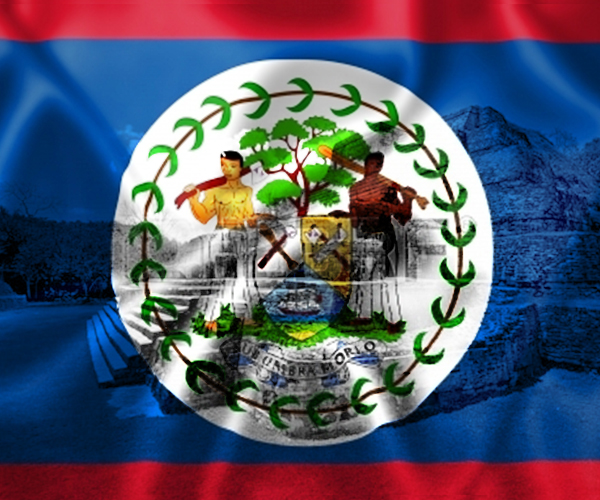


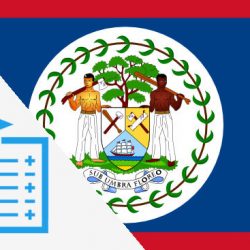
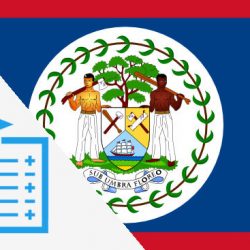
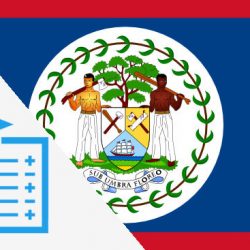
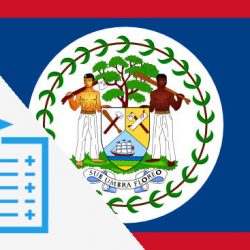
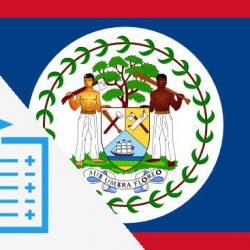
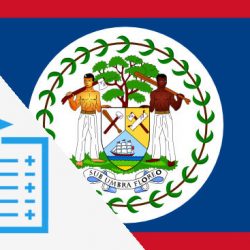
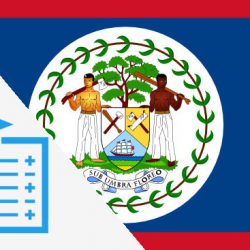
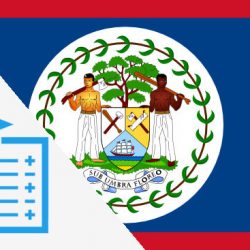
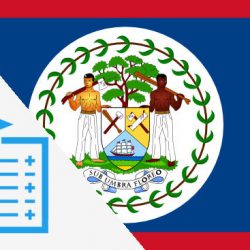
 We will not leak your personal information
We will not leak your personal information